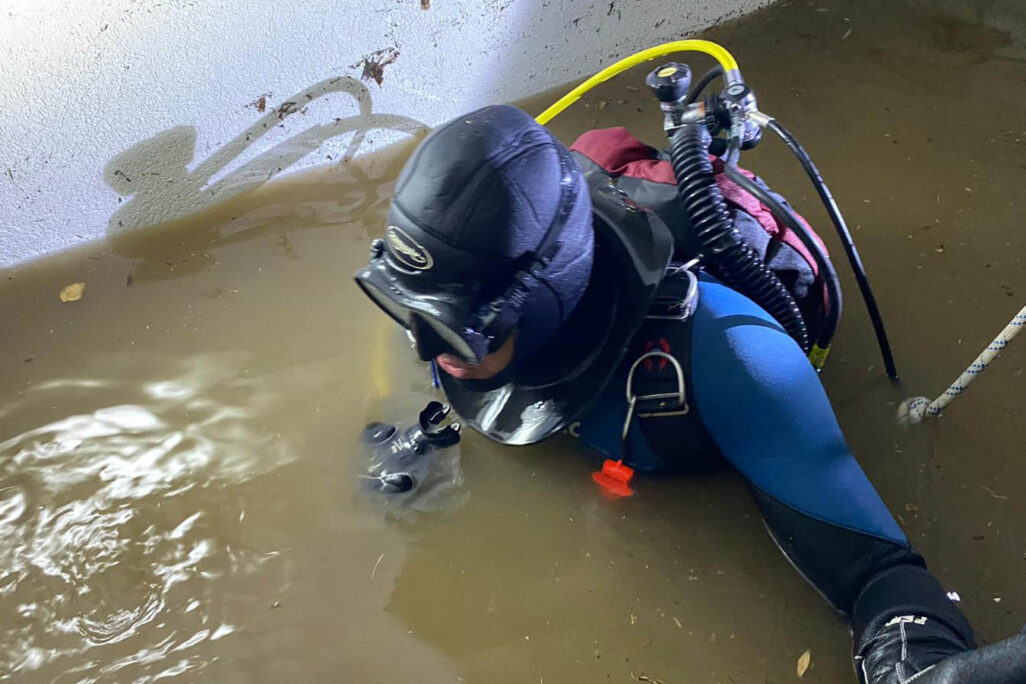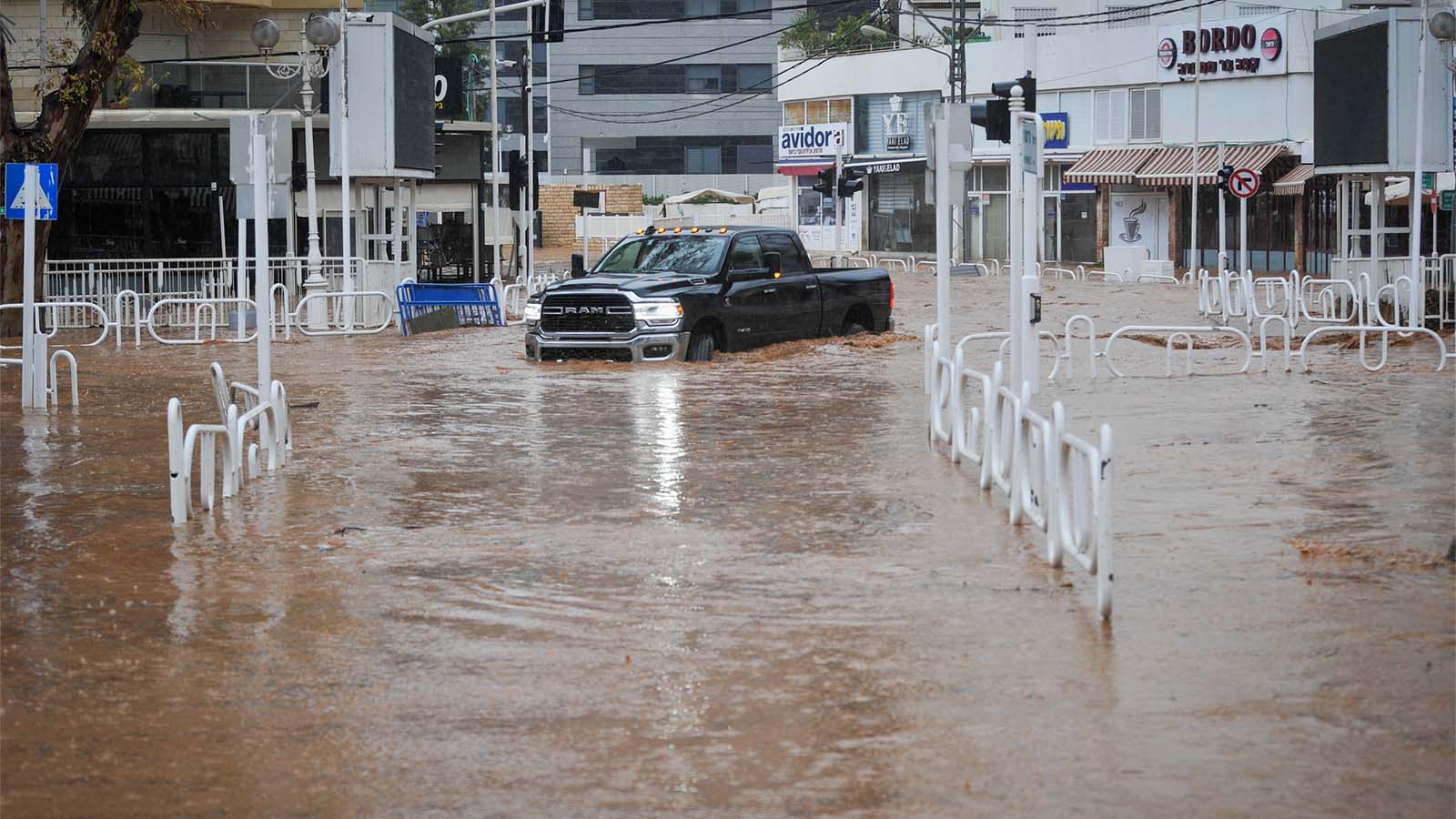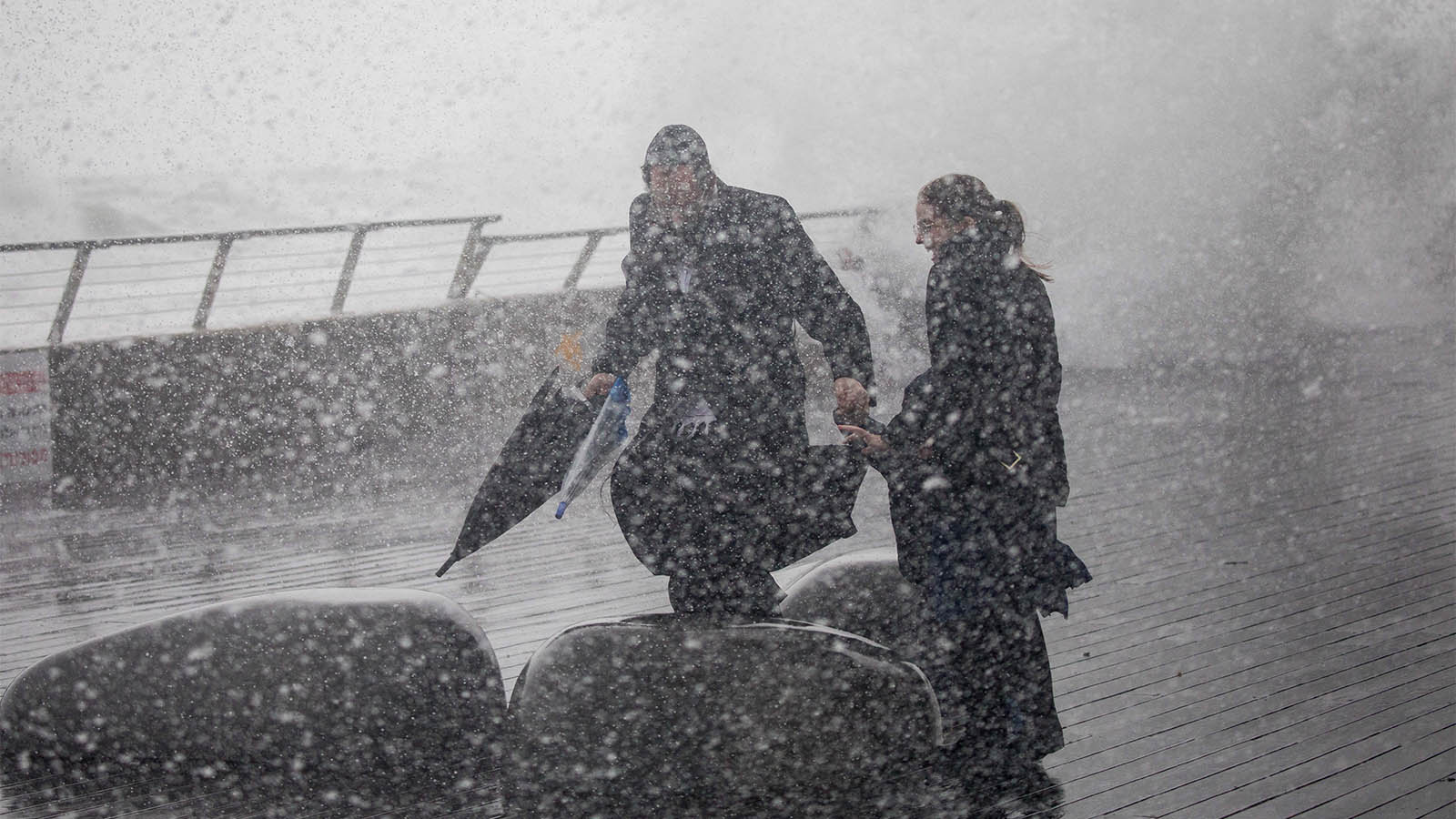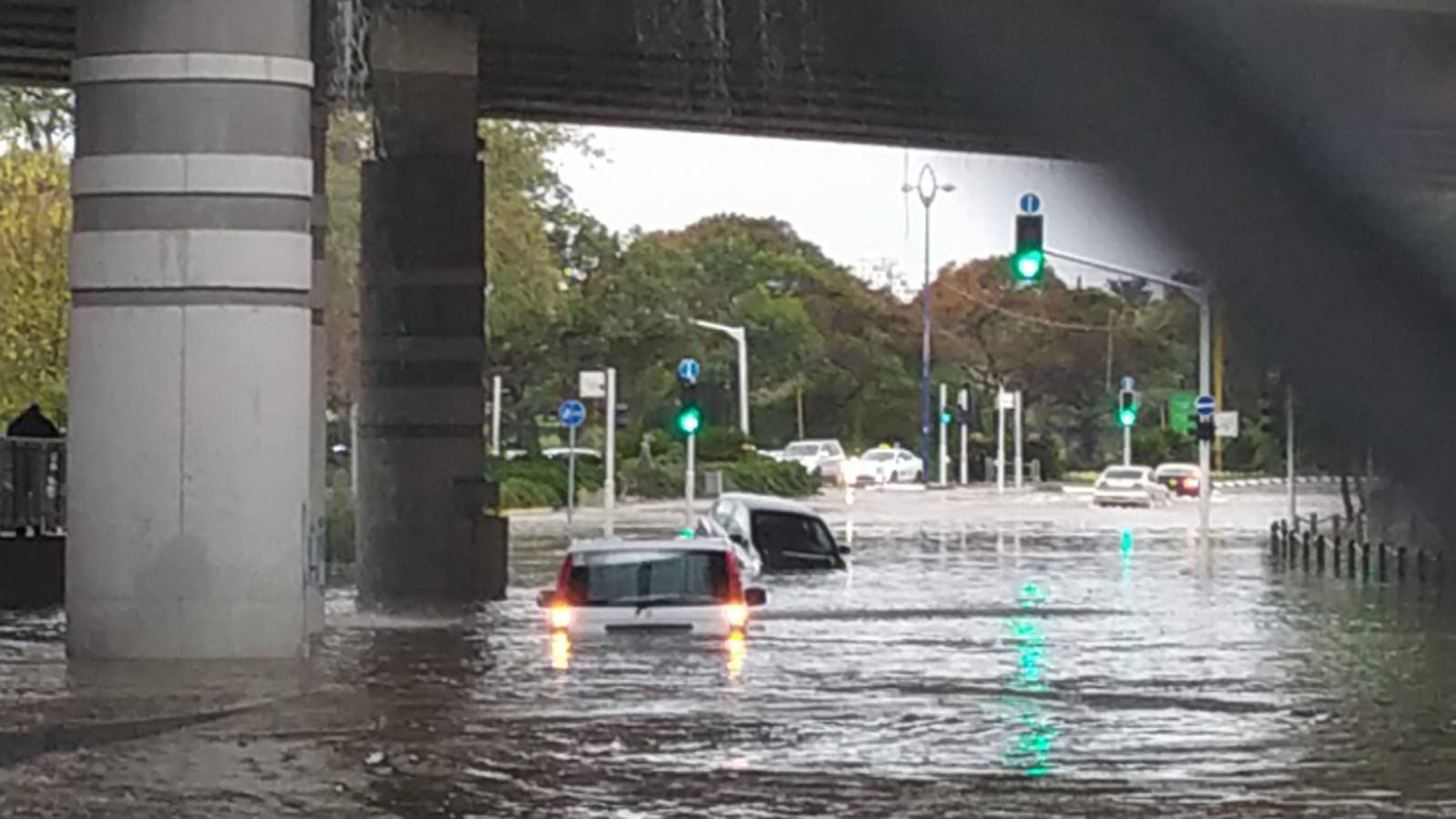
Two weeks ago, unprecedentedly heavy rainstorms across Israel's North and Center caused widespread damage and flooding and claimed the lives of five people. Among the victims were Dean Shoshani and Stav Harari, both 25 years old, who drowned in their building's elevator in south Tel Aviv when the building's underground parking level flooded, causing the elevator's electricity to cut out and trap them inside. A day after the couple's tragic deaths, the National Fire and Rescue Authority published a Facebook post titled "Lifesaving instructions in event of flooding and storms", warning the public against the use of elevators during floods.
Surprisingly, it seems that this was the first time this year that any public body had published any kind of warning to the public about the dangers of flooded buildings. In contrast, the Fire and Rescue Authority does regularly warn the public about the dangers of hiking in flood-prone desert canyons, driving in stormy weather, and the improper use of indoor heating appliances.

How can it be that until two weeks ago, none of Israel's authorities had considered the possibility that someone might be at risk of drowning in a flooded building? Davar's investigation found that although Israel conducts extensive nation-wide planning for emergencies such as chemical warfare and missile attacks, there is no national public body responsible for coordinating the response to weather emergencies, so it remains unclear which agency carries the responsibility of anticipating which public warnings ought to be issued. With the worsening effects of climate change, extreme weather events in Israel are predicted to increase in frequency and strength. How can it be that nobody is responsible for anticipating weather-related hazards?
Our investigation into the weather communications of various emergency services bodies came up short. The Fire and Rescue Authority told Davar that while they do publish various public announcements, the police is the agency responsible for weather emergency communications. When we contacted the National Emergency Authority, which sits within the Ministry of Defense and whose stated mission is to coordinate the emergency responses of various government bodies and define national emergency policy, they told us to talk to the Ministry of Interior. The Ministry of Interior referred us to the Fire and Rescue Authority, which sits within the Ministry of the Interior.
In short, of all the various bodies that deal with emergencies in Israel, none see themselves as responsible for making sure that the public receives all the information needed to stay safe during weather events.
No responsible authority during floods
Some experts in the field of emergency preparedness do not consider public awareness of flood dangers to be an important factor in saving lives. Brigadier General Bezalel Schreiber, former director of the National Emergency Authority, is not convinced that public emergency warnings are significant. He pointed to building code inspections and ensuring quick rescue force response times as more important life-saving public measures than emergency warnings. "The State of Israel doesn't release instructions for floods," he told Davar. "The state needs to prevent urban flooding. In the case of a flood, the state needs to ensure that emergency services are responsive." Former Assistant Police Commissioner Meir Ben Ishai, today an emergency preparedness expert and consultant, added, "The police and the rescue forces don't issue warnings for every possible event. Citizens need to use common sense and not enter flooded indoor areas."

In contrast to these opinions, Yoni Ben Dor, director of operations of Hanoar Haoved Vehalomed, one of Israel’s largest youth movements, thinks that the root of the problem is the lack of a coordinated national response to safety threats. Ben Dor, who participates in Ministry of Education investigations into safety violations, told Davar that "What's missing strategically is a national safety authority. Israel has a very sophisticated framework for dealing with national security issues, but safety issues are only addressed at the local level. For example, the regional authorities establish a rescue unit that responds to local needs. Other bodies like the education system or the youth movements have their own safety standards and enforcement. There's no national authority."
In the absence of a national authority, says Ben Dor, there's no forward-thinking public safety policy, and the various bodies are caught off guard when a new type of tragedy occurs. "I assume that before the next storm, the Fire and Rescue Authority will say 'beware of floods' and update their announcements. The police, too. After the Tzafit tragedy, look how seriously everyone is taking flash floods all of the sudden,” he said, in reference to a flash flood which occurred during an army preparation academy's group hike last year, in which 10 students drowned. “There are warnings, infographics on the television, and announcements that hiking is 'forbidden'. It all started only after the tragedy. Before then, they used to just 'not recommend' hiking in desert canyons in the rain."
Those guys can talk for hours about what will happen during a missile attack, and how the bakeries and the banks will respond, down to the finest details. But nobody is responsible for other types of safety on a national level
Ben Dor stresses the difference between Israeli preparedness for security threats in comparison with other types of emergencies. "The IDF (Israeli Defence Force)'s Home Front Command has a list of every city in Israel and at what magnitude earthquake that city will fall apart, that is to say, based on the strength of each building, they can predict how many people will die if a certain type of earthquake or missile strike hits that city. But in those same buildings, is the electrical wiring safely grounded? How old are the buildings, are they in danger of collapse due to structural aging? Are they flood-prone in heavy rains? Nobody asks those questions, you can't find that information anywhere."

Why is that the case? "The professional leadership in Israel are all army people and the army is what they know. Those guys can talk for hours about what will happen during a missile attack, and how the bakeries and the banks will operate, down to the smallest resolutions. But nobody is responsible for other types of safety on a national level. And the entire problem starts there." But until a decision is made on the issue of safety warnings, the Israeli public will continue to be vulnerable to extreme weather hazards.






